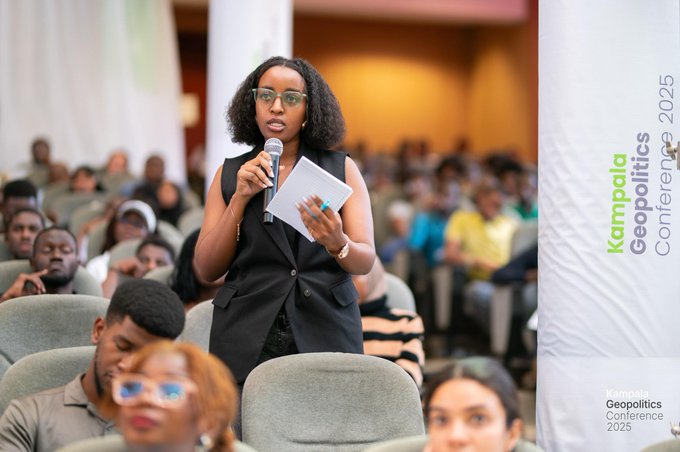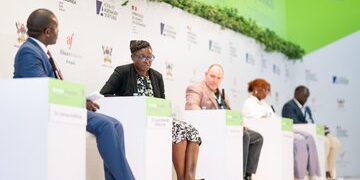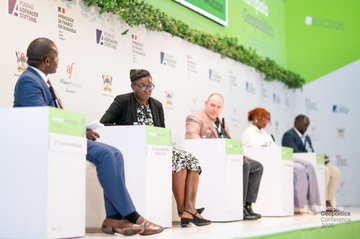Dr Joyce Nabende Nakatumba, Director of the Centre for Artificial Intelligence and Data Science at Makerere University, has raised the central question of Africa’s preparedness to embrace Artificial Intelligence (AI).
She was speaking during the third panel at the Kampala Geopolitics Conference 2025, which turned the spotlight on one of the continent’s most pressing emerging issues: “AI, Misinformation, and Democracy in Africa: Risks and Opportunities.”
Dr Cosmas Mwikirize, Superintendent of Industrial Value Chains Development at Uganda’s Science, Technology, and Innovation Secretariat, moderated the panel, which featured incisive contributions from leading voices in AI, policy, advocacy, and innovation.
Are We Ready for AI?
“If we are to build models, are we ready technologically in Africa? Are we ready legally? Is our regulatory environment prepared for the uptake of AI, given how fast it’s growing?” asked Dr Nabende.
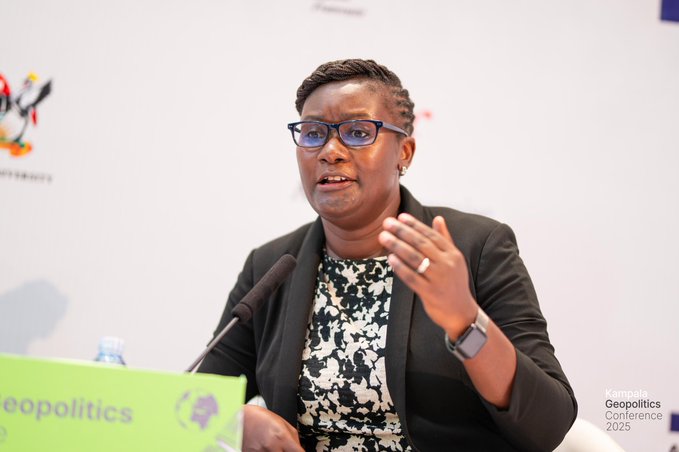
Dr. Nabende emphasized the urgent need for institutional readiness, noting that Africa’s younger, tech-savvy generation is already leveraging AI tools and social media to advocate for their rights.
“We live on a continent with Gen Zs who are actively using AI and social media. As the older generation, we must catch up and pave the way institutionally.”
She also expressed concern over infrastructural limitations: “We’re afraid of being left behind. We already face challenges with electricity and the internet. Overlaying new technology like AI adds another layer of complexity.”
The Hidden Dangers of AI and Misinformation
Dr. Scott Timcke, Senior Researcher at Research ICT Africa in South Africa, warned about the elusive nature of misinformation fueled by AI technologies.
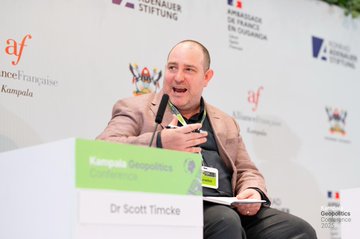
“The biggest problem is the detection gap. We’re not well placed to identify problems in technology because they often hide their tracks effectively.”
He highlighted how a poor understanding of technical systems leads to the adoption of simplistic metaphors to explain complex issues, calling for improved technical literacy across the board. “We need to be more technically literate to understand and manage the systems at our fingertips.”
Challenging Stereotypes with AI
From Nigeria, Abimbola Ogundairo, Advocacy and Campaign Lead at Africa No Filter, showcased how AI can also be a tool for cultural empowerment.
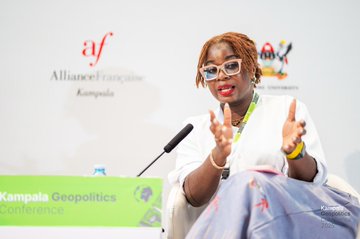
“We’ve leveraged AI to detect stereotypes in content by training it to identify biases against Africans. This tool helps improve content and reduce harmful narratives.”
She also noted a troubling trend of news avoidance: “People are increasingly avoiding news because it’s often depressing, especially during election seasons. We’re seeing a spike in negative reporting, which disengages the public.”
Folklore and Fear: AI in the African Context
David Gonahasa, Team Lead for Industry 4.0+ at Uganda’s Ministry of Science, Technology, and Innovation, compared modern fear of AI to traditional African folklore.
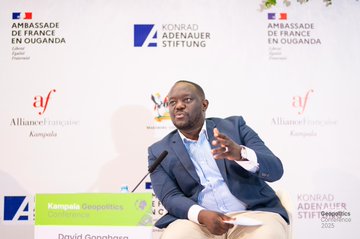
“In African folklore, when we didn’t understand something, we deemed it evil. And I see this happening a lot with AI.”
He stressed the need for informed regulation rather than fear-based or reactionary policies: “We must drive AI regulation using accurate, local information, not imported benchmarks that may be disruptive.”
Gonahasa also warned of Africa missing out on commercial opportunities tied to AI, urging policymakers to develop homegrown solutions that both manage risks and unlock potential.
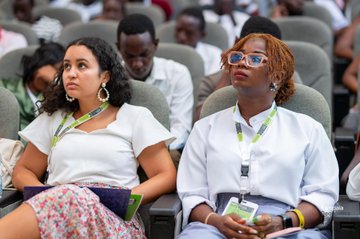
The panel concluded with a shared understanding: Africa must move fast to prepare its institutions, legal frameworks, and societies to deal with the disruptive power of artificial intelligence before misinformation undermines hard-won democratic gains.
The high-level discussion brought together experts from across the continent to explore Africa’s preparedness to face the fast-evolving world of Artificial Intelligence and its impact on democratic processes.
